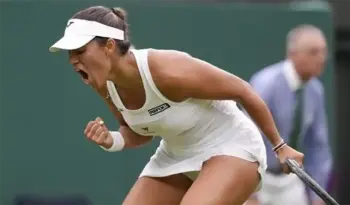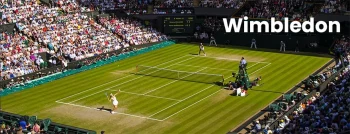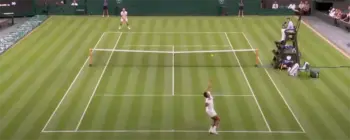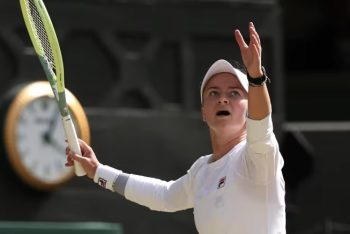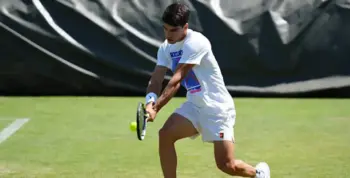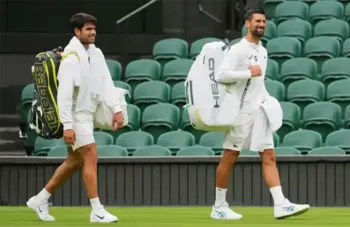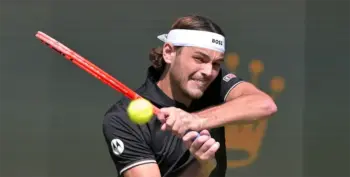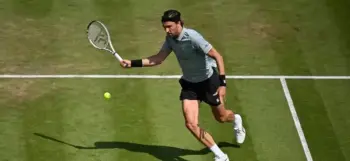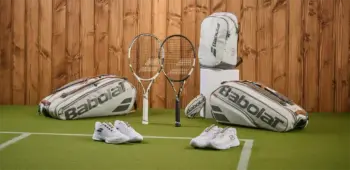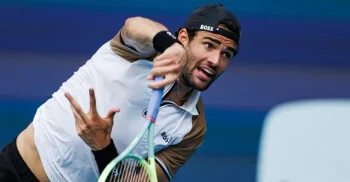How Aryna Sabalenka Beat Jessica Pegula in the Women’s US Open Final
Aryna Sabalenka has won her third Grand Slam title, defeating Jessica Pegula 7-5, 7-5 in the final of the US Open in New York on Saturday afternoon.
The Belarusian overcame a resilient effort from home favorite Pegula in what was a back and forth affair, with the American coming within points of forcing a deciding set. What was it that made a difference between Sabalenka and Pegula in the women’s US Open final?
We’ve singled out three aspects of the match that determined a winner.
1. Baseline Aggression by Sabalenka
Sabalenka has always been a very aggressive player. It’s an approach that’s been proven to do really well in women’s tennis, highlighted by how successful Serena Williams was.
If you can play that way and do it very well, you’re almost guaranteed to be successful. Due to being a tall individual who can generate a lot of power, it was a no-brainer for Sabalenka to play that way.
While it wasn’t there earlier in her career, consistency has been present in recent years. She’s developed into a player who is able to both generate tremendous power off the court but also hit some crazy angles.
She does make mistakes, plenty of them, but that style of play still becomes overwhelming over a span of a few games. That’s exactly what happened here. Pegula plays a similar style, but she doesn’t have the power nor the consistency of Sabalenka, and it proved a problem.
While Pegula did take a 2-1 lead initially in the US Open women’s final, the sheer overwhelming nature of Sabalenka’s style proved too much.
A 2-1 lead became a 2-5 deficit, and from there it snowballed in favor of Sabalenka. Even when the Belarusian went through brief patches of not finding success with her baseline aggression, she kept hitting through the ball and found winners when it mattered most.
The aggressiveness on her serve and both on return proved too much. Pegula is one of the players who can flick the ball nicely with her stance, but it just didn’t work in the face of Sabalenka’s power.
Sabalenka took her skill to such a high level that even a player who lost only once in the past 15 or so matches couldn’t even hold her own. That aggression and the belief that it will yield results won her the match.
2. Sabalenka’s Willingness to Hit Errors
Sabalenka always had the talent to dominate as much as she’s been doing in the past two years, but the confidence wasn’t there. Tennis is a very mental sport, and if you don’t trust what you’re trying to do on the tennis court, it won’t end well.
Sabalenka has always played the same way. She was always an aggressive baseliner with a powerful serve, but it never translated to dominating because there was a lot of doubt there.
There isn’t much doubt these days, and even a slow start by the Belarusian, where she got broken in her second service game, didn’t shake her.
She was missing her shots, and Pegula was returning spectacularly, but it didn’t matter too much. She kept doing what she’s always done because she simply firmly believes in it. That calm confidence hugely contributed to her dominance in recent years.
Even in this match, you didn’t see her grow increasingly frustrated by the slow start. She just kept on pushing, and a 2-1 lead for Pegula turned into a 4-2 lead for Sabalenka. Three winners and five unforced errors became six winners and six unforced errors.
Her confidence and self-belief were unshakable, and obviously, it hugely contributed to her winning the match. Just look at her winner-unforced error ratio. Despite having 34 unforced errors, Sabalenka knew that her approach was correct because with 40 winners, that’s what won her the match.
3. Pegula’s Lack of Experience
Experience is a strange thing in sport: sometimes we give it a lot of importance and other times we completely dismiss it. It certainly proved a factor in this one, regardless of how it looked.
Pegula has never been in a Grand Slam final and generally doesn’t have too many big finals under her belt. Sabalenka, on the other hand, has a couple of big finals and won two Grand Slams before. She even has a loss in a Grand Slam final.
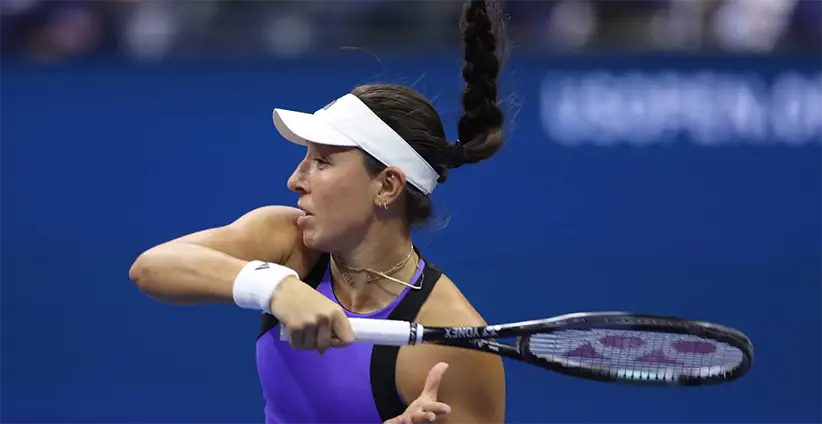
They say we learn more from losses than from victories, and there is some merit to that. Sabalenka endured a pretty painful loss in the US Open last year, and she learned a lot from it.
This match proved that she learned a lot from it. Despite a shaky start and an early lead for Pegula, she didn’t lose her focus. She kept doing what she does best, which is smashing the ball very hard.
Eventually, she did turn around the opening set, and from there was able to hold that focus to win the match. Pegula didn’t look too nervous to start, but once Sabalenka started to turn around the match, she didn’t really do anything.
There wasn’t an adjustment, there wasn’t anything that made you believe she was attempting to do something. She doesn’t have that experience of playing in a Grand Slam final.
At times, she looked puzzled because, in fairness, there isn’t much to adjust when playing Sabalenka. You kind of have to outlast her from the baseline, and sometimes it’s not even possible because she’s that good.
Pegula did try the block return for a while, but ultimately the rallies settled the match, and while she didn’t lose the match as she played okay, she certainly didn’t win the match, and this match is the type of match you have to take.
You have to win, and to do that you need experience—experience which she didn’t have.
Overall it was a fantastic match to watch, but the better player in Sabalenka won, and it was a deserved win too.
Now, over to the men’s final, don’t miss our Sinner vs Fritz preview!
Highlights
Watch the highlights below from the Women’s 2024 US Open Final:



